TDB provides a wide selection of plastics for CNC machining, catering to various industries. These materials are perfect for creating both one-off prototypes and end-use custom parts.
- Competitive Price
- Fast Turnaround
- Material Certificates
- Global Delivery

CNC Machining Plastic
Selecting the right plastic for CNC machining requires careful consideration of several factors, as the choice is crucial to the project’s success. For instance, the plastic may need to withstand high temperatures or resist bending or breaking under pressure. Key aspects to evaluate include corrosion resistance, workability, cost, weight, and appearance.

POM
High strength, stiffness; low friction; excellent dimensional stability.
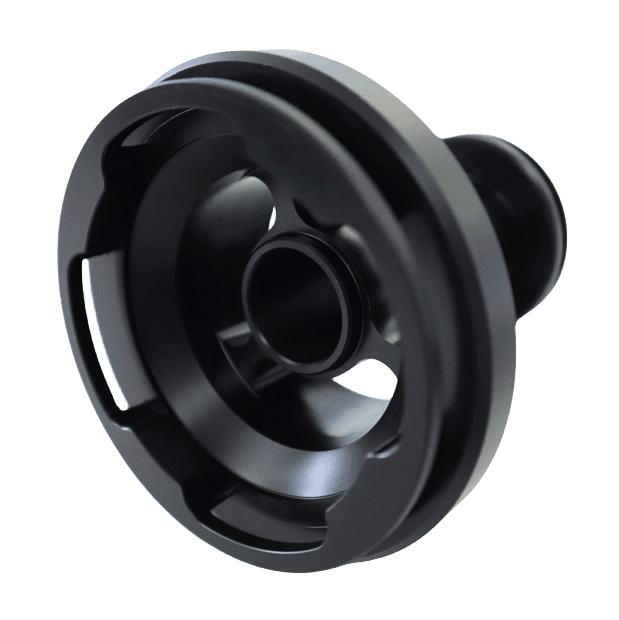
ABS
Tough, impact-resistant; easy to machine; popular for prototyping.

Nylon (PA)
Wear-resistant, strong; good sliding properties; absorbs moisture.

PEEK
High-temperature resistance; superior mechanical properties; chemical resistant.
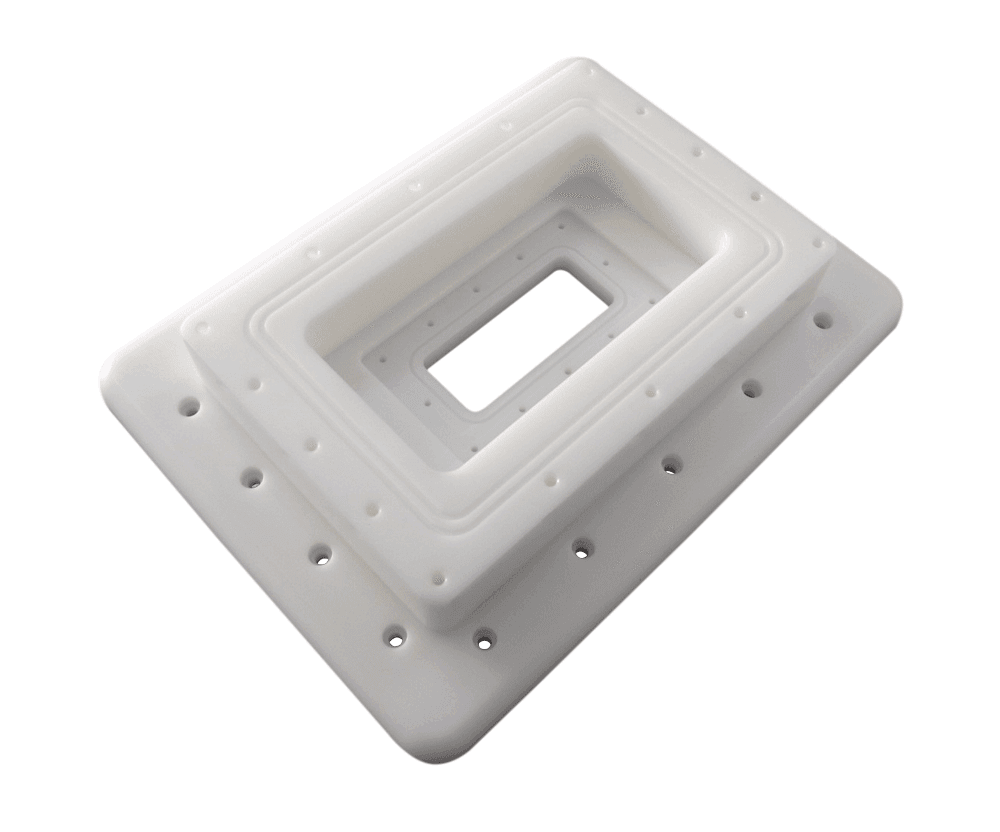
PTFE (Teflon)
Extremely low friction; high heat resistance; chemically inert.
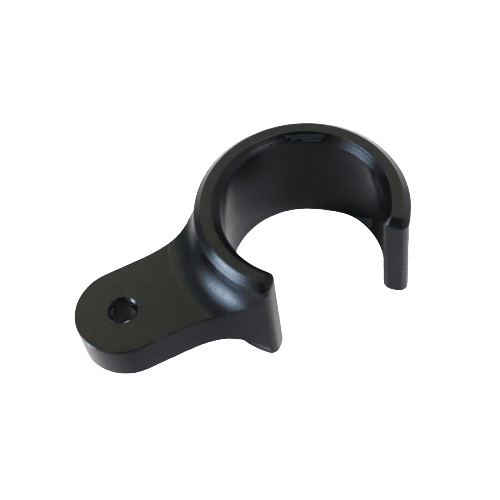
PVC
Good chemical resistance; easy to weld and machine; durable.

PMMA (Acrylic)
Optically transparent; UV resistant; good weatherability; brittle.
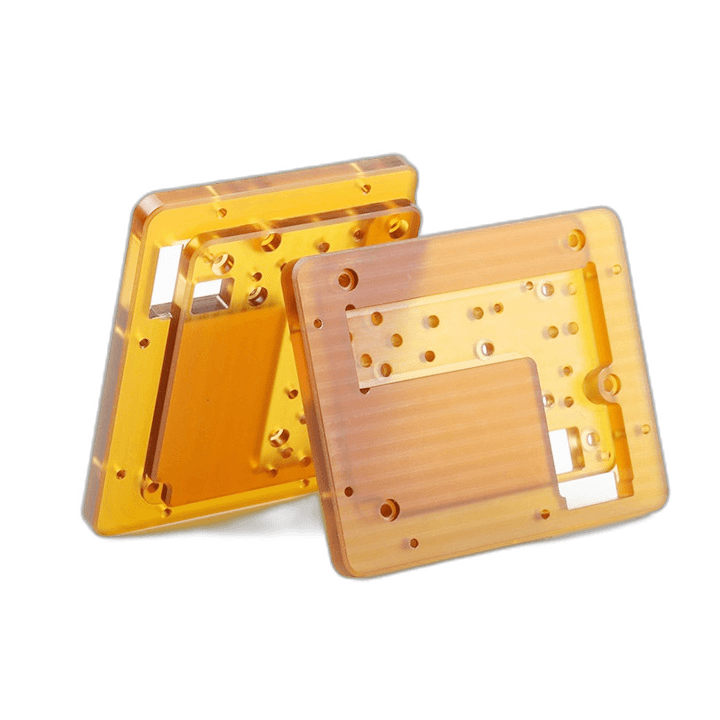
PEI (Ultem)
High strength and heat resistance; flame retardant; medical-grade.

PAI
Exceptional thermal and chemical stability; high strength and stiffness.
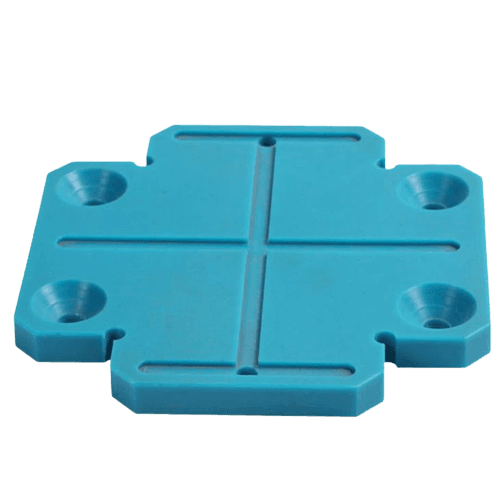
HDPE
Excellent impact resistance; low moisture absorption; chemical resistant.
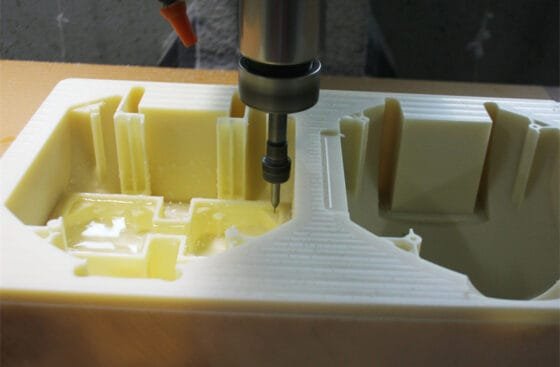
What is Plastic CNC Machining?
Plastic CNC machining is a subtractive manufacturing process where a solid block of plastic material is shaped by a cutting tool that removes excess material. The cutting tool’s movements are guided by a digital design file, ensuring the final product achieves the desired shape and specifications.
This method has become a popular choice for manufacturing plastic components and parts due to its ability to produce high-precision items with uniformity and tight tolerances.
Plastic Machining Process

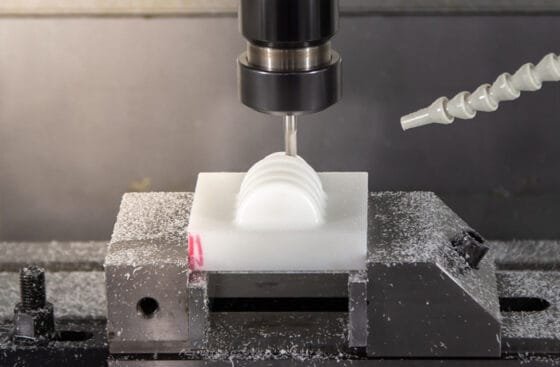
Plastic CNC Turning
Plastic turning is a manufacturing process in which the workpiece is rotated while a stationary cutting tool removes excess material with precision, shaping the part according to the desired design.
Plastic CNC Milling
Plastic CNC milling is a machining process where the workpiece is secured on a table, and a rotating spindle holds the cutting tool. This tool removes plastic material from multiple axes to achieve the desired shape and dimensions.
Advantages of CNC Plastic Machining
Plastic manufacturers often prefer CNC plastic machining over other manufacturing methods due to its numerous advantages. Here are some key benefits of plastic CNC machining:
Mold-Free
One of the main advantages of plastic CNC machining is its ability to produce parts without the need for molds, making it perfect for prototypes and short-run production. Unlike injection molding, CNC machining eliminates the need for costly metal tooling, significantly reducing both production time and costs.
Wider Range of Materials
Tighter Tolerances
Plastic CNC machining is an excellent choice for parts that demand high-precision measurements, offering greater accuracy and repeatability than injection molding or 3D printing. This makes it particularly suitable for industries that require strict adherence to exact tolerances, such as aerospace, medical, and automotive applications.
When to Use CNC Machining instead of 3D Printing?
The choice of plastic fabrication method depends on several factors. But when should you opt for CNC machining instead of 3D printing?
When Making Large Plastic Parts
3D printing large plastic parts is often impractical due to the lengthy production time, which can take several hours. In contrast, fabricating large parts with a CNC mill is significantly faster, often completed in just a few minutes.
Type of Material
When designing a component using materials like PVC, POM, PEI, or PEEK, 3D printing is not a viable option. These materials are instead available in blocks and bars, making them suitable for CNC machining.
High Accuracy
CNC machining is the preferred method for producing precise parts with intricate details, as it can achieve extremely tight tolerances of up to ±0.005mm. In comparison, 3D printing typically offers tolerances ranging from ±0.1mm to ±0.5mm.
Part Intricacy
When parts demand tiny, intricate details that 3D printing cannot achieve, CNC machining becomes the optimal choice. For instance, small features like intricate optical patterns can be machined with radii as small as R 0.05 mm, a level of precision that is challenging for 3D printing to replicate.

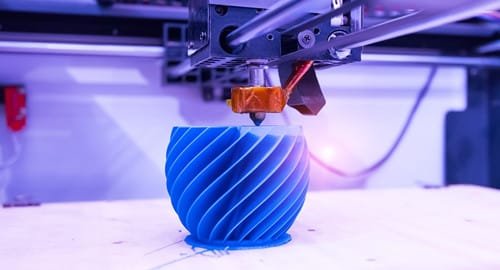
Applications of CNC Machined Plastic Parts
Medical Devices
CNC machining is widely used to produce high-precision plastic parts for the medical industry, including medicine dispenser components, surgical tool handles, and medical device parts. A variety of medical-grade materials are available for this manufacturing process.


Food and Beverage Industry Parts
CNC-machined plastics are perfect for creating components used in the food and beverage industry, such as valves, nozzles, and seals. These parts are commonly utilized in food processing and packaging equipment.
Semiconductor Parts
The semiconductor industry depends on plastic CNC machining to produce precise components made from high-performance engineering plastics. These complex parts demand extremely tight tolerances and exceptional surface finishes, achievable only through the precision of CNC machining.
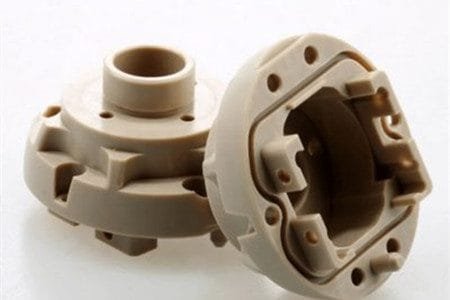
Automotive and Aerospace Parts
Plastic CNC machining is an excellent method for producing high-performance components for the aerospace and automotive industries. This process allows for the fabrication of various plastic materials that meet the stringent regulations and standards required by these sectors.
Plastic CNC Machining Services
Are you seeking comprehensive solutions for producing plastic parts with tight tolerances and superior surface finishes?
TDB Machining Shop provides cutting-edge CNC machining services with guaranteed quality and quick turnaround times. With over 50 plastic milling and turning machines, we ensure consistent, high-quality machined parts at competitive prices.
Whether you need simple or complex prototypes, low-volume, or large-scale production runs, we can handle a wide variety of plastics to meet your requirements.
